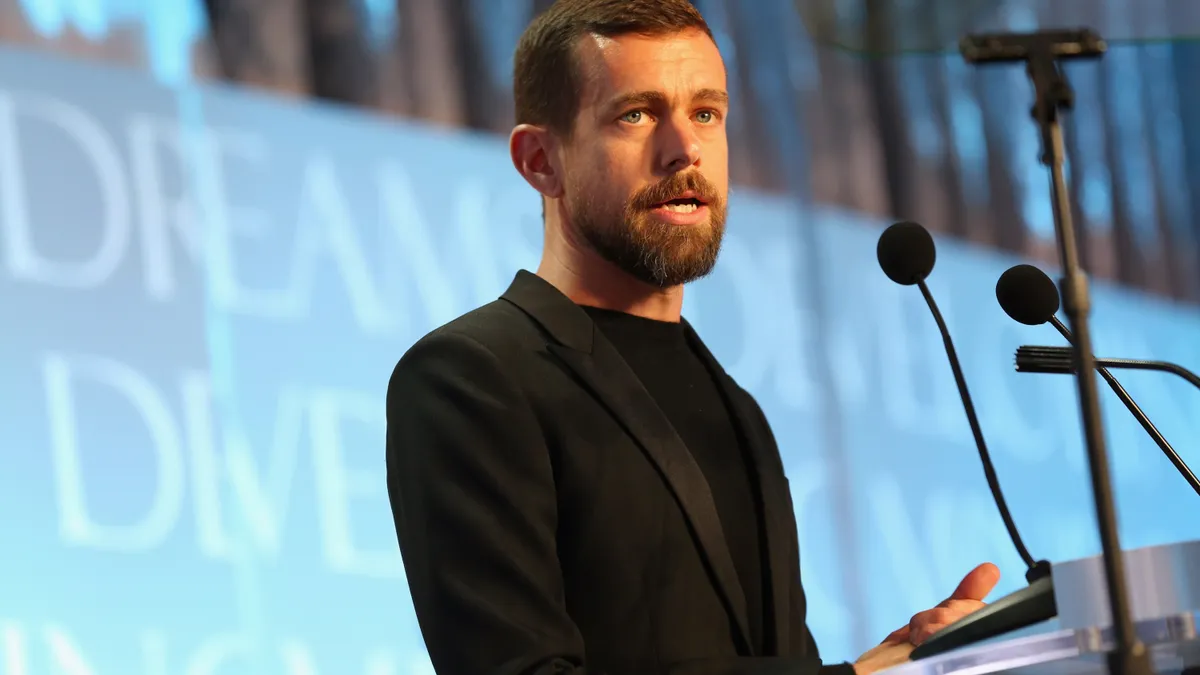Dive Brief:
- Square plans to acquire the Australian buy now-pay later company Afterpay for $29 billion and expects the deal to close by the end of the first quarter next year, the company said in a press release Sunday.
- Afterpay was founded in Sydney in 2015 and has become one of the biggest players in the expanding BNPL arena, with 16 million consumers and 100,000 merchants across fashion, housewares, sporting goods and other retail areas worldwide signed up to use its services. Afterpay services are available in Australia, the U.S., Canada, New Zealand, the United Kingdom, France, Spain and Italy, the release said.
- "Square plans to integrate Afterpay into its existing Seller and Cash App business units, enable even the smallest of merchants to offer BNPL at checkout, give Afterpay consumers the ability to manage their installment payments directly in Cash App, and give Cash App customers the ability to discover merchants and BNPL offers directly within the app," the release said.
Dive Insight:
The acquisition underscores Square CEO Jack Dorsey's ambitious plans to build his merchant and banking empire in new retail directions and across the globe. It will benefit Square's merchant business by allowing it to add larger retailers to its network and reach into new geographic regions while its Cash App digital payments unit will add more ways to let users manage their spending and connect them to more retailers, the release said.
At $29 billion, or $92.66 per share, the acquisition is Square's biggest, and provides a 31% premium for the stock, the Wall Street Journal reported, noting that Dorsey came into contact with the co-CEOs of Afterpay through their philanthropic interests.
San Francisco-based Square, founded in 2009, said it has "millions" of merchants using its trademark square technology to sell their wares and services while it has accumulated some 70 million Cash App users since that mobile payment tool business was created as a way to send and receive money (later it expanded by adding ways to store, spend and invest money too.
The company has also been aggressively pushing into banking services, launching its Square banking and lending products for merchants earlier this year. That followed a doubling of Square's annual net revenue last year over 2019 to $9.5 billion, as net income slid to $213 million, according to its annual filing with the Securities and Exchange Commission.
Square said the combination will let it to cater to a younger consumer that's drifting away from traditional banking and credit lines and to merchants that are increasingly seeking new digital avenues to expand their appeal and their businesses. Adding the Afterpay deal will also stretch its business beyond its current reach in the U.S., Canada, Japan, Australia, Ireland, Spain, Norway, and the United Kingdom.
Afterpay was among a host of BNPL players, including its big Swedish rival Klarna, seeking to gain traction in the U.S. As the the installment financing fad has caught on larger legacy players, such as the big credit card companies, have been touting their own competing BNPL services.
The companies both paint themselves as eager to hand more power back to consumers so they can pay for goods and services over time with less burdensome credit card alternatives. With Afterpay, consumers are able to pay interest-free in four installments over time, with retailers footing the bill for the privilege. Square's release said the combination "brings together two of the fastest growing global fintech companies to advance shared mission of economic empowerment and financial inclusion."
"Square and Afterpay have a shared purpose," Dorsey said in the release. "We built our business to make the financial system more fair, accessible, and inclusive, and Afterpay has built a trusted brand aligned with those principles." Dorsey is also the CEO of social media company Twitter.
Still, some regulators in Europe, where the BNPL trend has caught on more than in the U.S., have recently been considering measures to make sure they're safeguarding consumers being drawn to the lending arrangement. Given consumers don't pay fees, other than if they're late on making their installment payments, it doesn't fit neatly under exiting U.S. consumer finance laws. The industry participants this year stepped up with their own code of conduct, likely in a bid to head off onerous regulations.
While Square said in the release that it "empowers consumers" to buy the things they want and need, it also promises retailers that it's able to grow their business by driving bigger tabs and repeat purchases.
"By combining with Square, we will further accelerate our growth in the U.S. and globally, offer access to a new category of in-person merchants, and provide a broader platform of new and valuable capabilities and services to our merchants and consumers," Afterpay's co-founders and co-CEOs, Anthony Eisen and Nick Molnar, said in a statement. The co-CEOs will join Square and continue to lead Afterpay business units.















